Located on a secluded part of the Bay of Kotor in Montenegro, Kotor is a UNESCO heritage site that captivates visitors with its medieval charm, breathtaking landscapes, and rich history. Whether you’re drawn to Kotor’s narrow cobblestone streets, the bay of Kotor, or hikes from the center of town, Kotor has something for everyone. With so many things to do in and around Kotor, we’d argue that a day is not enough to truly experience Kotor. Here’s is your guide to the best things to do in Kotor, including Old Town exploration, side trips to Perast and the Blue Cave, and incredible hiking opportunities.
This post may contain affiliate links. If you make a purchase through these links, we will earn a small commission at no additional cost to you. We recommend products we have personally used or verified. Read the full disclosure here.
Don’t have time to read the whole article?
Here is the best Kotor day tour!
Find the top Kotor hotels!
Pin this for later!
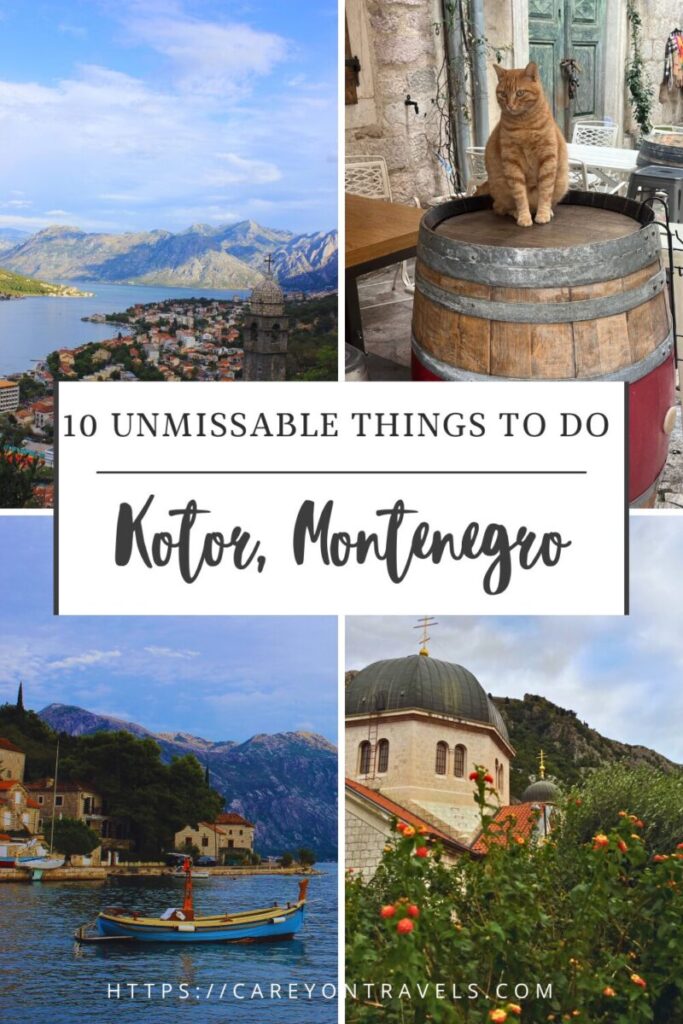
Table of Contents
- Is Kotor Worth Visiting?
- What to Read Before You Go to Kotor
- 10 Best Things to Do in Kotor
- Walk the Walls of Kotor
- Wander the Narrow Lanes of Old Town
- Visit Kotor’s Churches
- Kotor’s Old Town Museums
- Enjoy Old Town Kotor’s Restaurants and Shops
- Climb to San Giovanni Fortress
- Discover Perast and Our Lady of the Rocks
- Take a Boat Tour on the Bay of Kotor or to the Blue Cave
- Hike the Vrmac Ridge
- Ladder of Kotor
- When to Visit Kotor
Is Kotor Worth Visiting?
Yes, Kotor is absolutely worth visiting—and it might just become your new favorite destination. It is an alternative to Dubrovnik for those people looking to escape the overcrowded streets, while still enjoying walking city walls and narrow winding streets. Kotor can become crowded, but not on the scale that you see in nearby Dubrovnik. Many spend most of their time in Kotor exploring Old Town, with its many churches, museums, shops, and restaurants. Those who stay in Old Town Kotor can enjoy the quiet streets in the early mornings and evenings, when cruise ships have departed. Others enjoy walking along the Bay of Kotor to Dobrota or hiking to the breathtaking viewpoints above Kotor. There are also many possible half-day or day trips, such as to Perast and the Blue Cave.
What to Read Before You Go to Kotor
Immerse yourself in Montenegro and the Balkans’ history and culture before your visit with these recommended books:
- “Realm of the Black Mountain: A History of Montenegro“ by Elizabeth Roberts – An excellent non-fiction history of Montenegro. The first chapter alone is a great read to get a quick overview of Montenegro’s history, and it’s followed up by a deep dive.
- “Black Lamb and Grey Falcon” by Rebecca West – The author made multiple trips to Yugoslavia prior to WWII. The resulting travel journal is considered one of the best books about the Balkans, offering cultural commentary and historical insight.
- “The Tiger’s Wife” by Téa Obreht – A beautifully woven novel that blends folklore and history from the Balkans, giving a deep sense of the region’s past and present.
- “The Bridge on the Drina” by Ivo Andrić – A historical novel by a Nobel Prize-winning author, depicting centuries of life in the Balkans through the story of a bridge in Bosnia
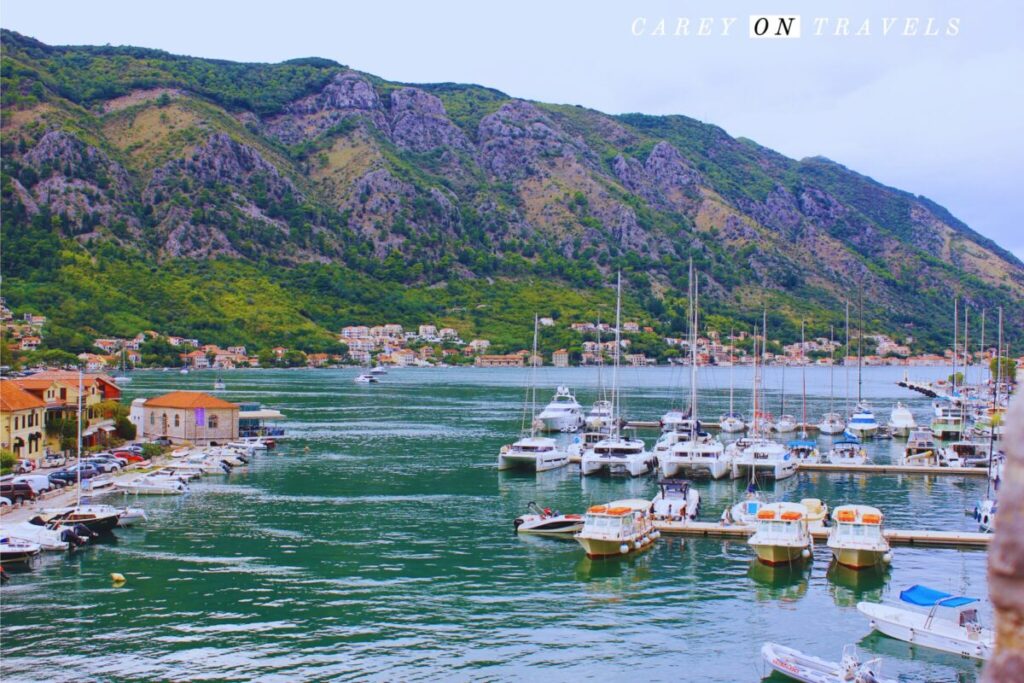
10 Best Things to Do In Kotor
Kotor’s Old Town is a UNESCO World Heritage Site, and it’s easy to see why. Its cobblestone streets, medieval walls, and Venetian-inspired architecture make it feel like stepping into another era. Some of the top things to do and see in Old Town Kotor:
1. Walk the Walls of Kotor
The first thing we recommend doing is to walk the walls of Kotor. The stretch of wall across the front side of Old Town (on the harbor side) is free. You can access this section of the walls either from the North or the South entrance. There are stairs leading up and down from the wall, so this could be a challenge for those with mobility issues. Not only do you get incredible views over the Bay of Kotor, the Kotor Fortress, and the old town, but this is a great way to orient yourself to the old town itself.
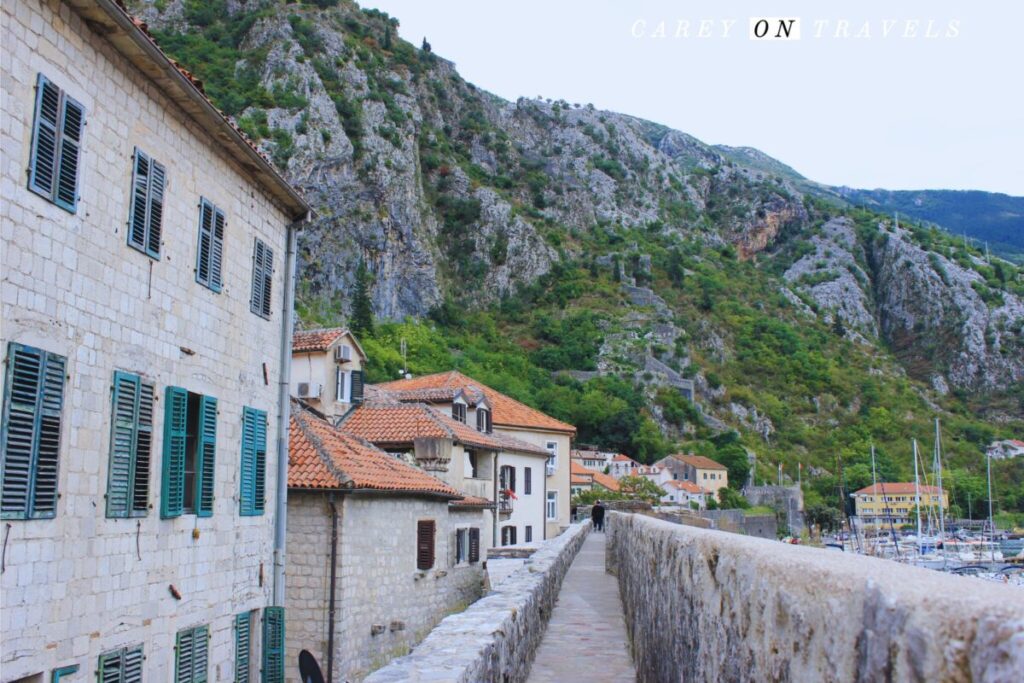
If you walk the whole length of the walls, this is about 4.5 km long, but this includes the paid section of the walls to the fortress (see more information below on the fortress hike).
2. Wander the Narrow Lanes of Old Town
Once you’ve walked the walls, take time to wander through the city streets. It is very easy to get lost, and we’d encourage it. If an alley or shop looks interesting, explore it. We found some of the cutest shops and cafés this way. We did have to use our phones to find our way back to a restaurant we had seen earlier on our wanderings, since we couldn’t find our way back to it. Be on the lookout for Ulica 2 sjever-jug (Let Me Pass Street), the narrowest street in Old Town Kotor, only 80 centimeters wide.
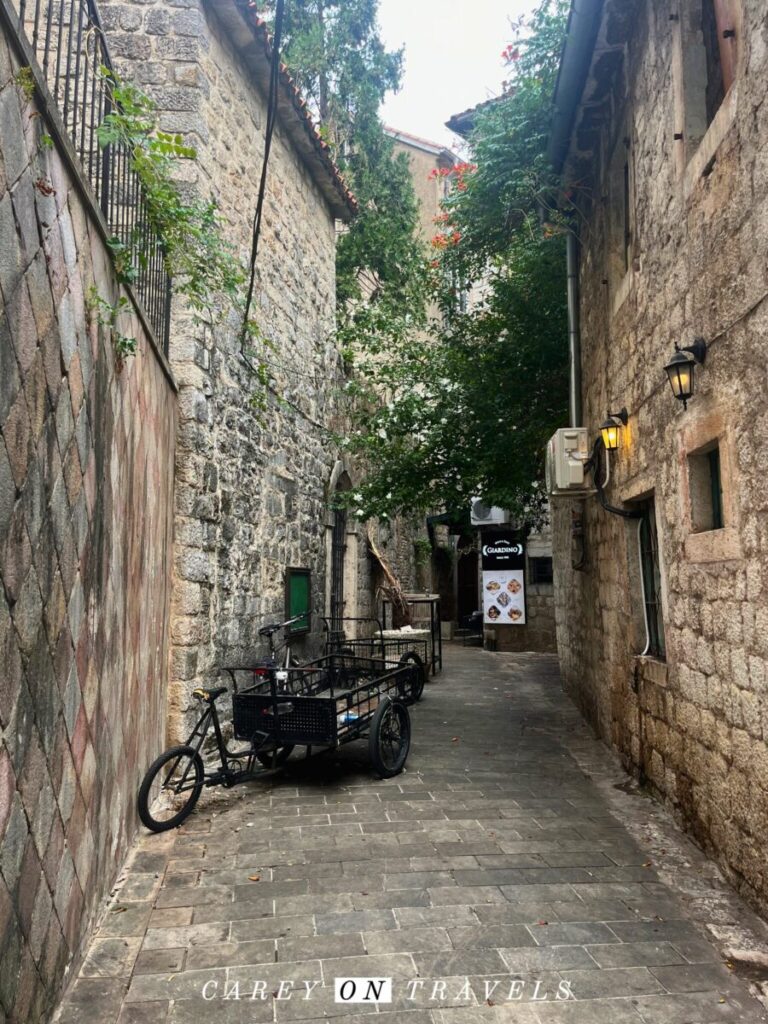
Pro Tip: Visit early in the morning or late in the evening to enjoy the Old Town without the crowds, especially during the cruise ship season. Keep in mind that most cruise passengers disembark after breakfast, and return to the ship by around 5 pm (this will vary based on their departure time).
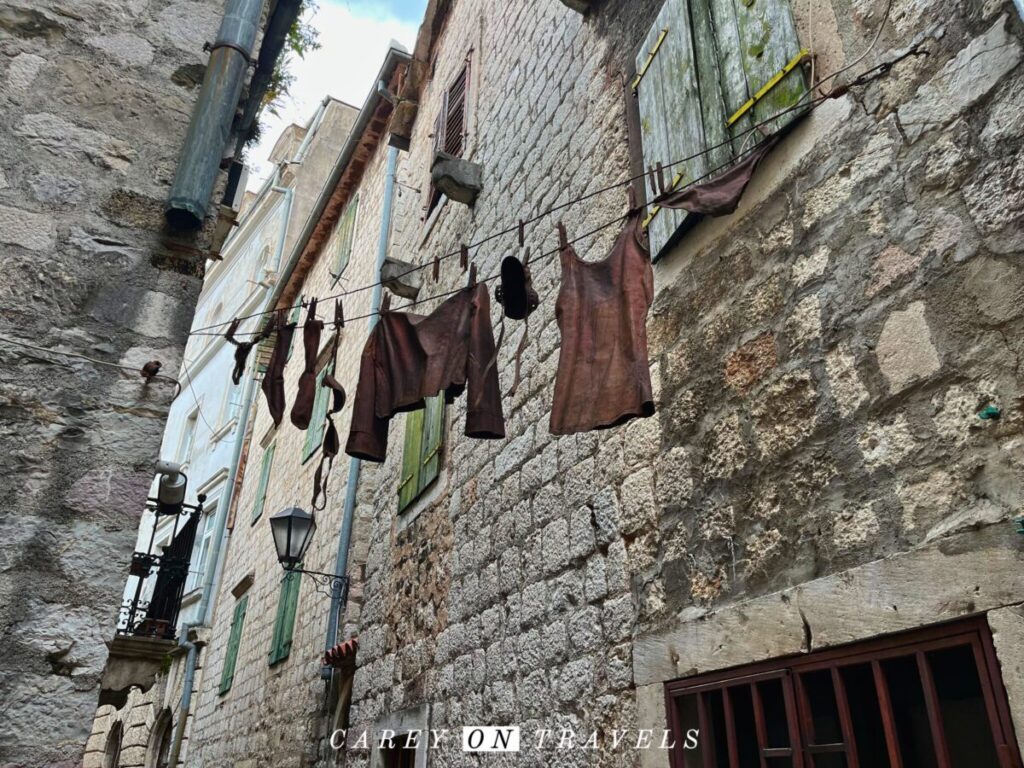
3. Visit Kotor’s Churches
While exploring old town, be sure to stop and visit some of Kotor’s many churches. Some of the top churches to see in town include:
- St. Tryphon’s Cathedral is a masterpiece of Romanesque architecture, located on the Square of Arms, where you’ll find plenty of cafés and restaurants. Visit early or late to avoid the many tour groups who congregate in this location. There is a small charge for entering the cathedral.
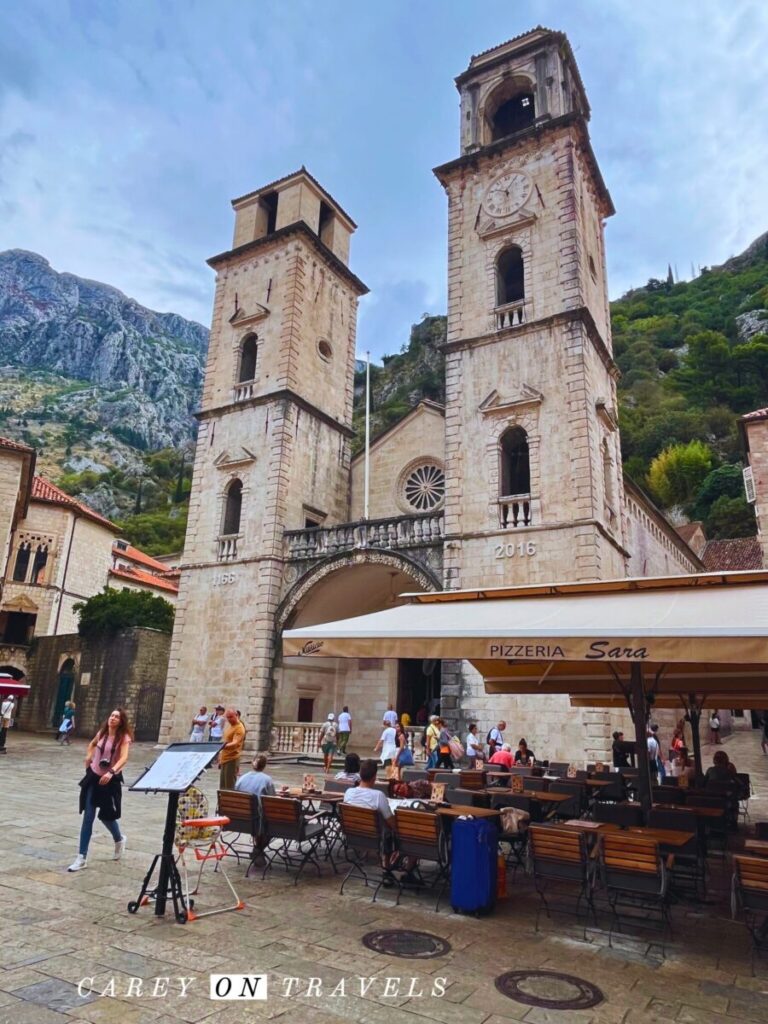
- Church of Blazena Ozana is a 13th century church built on the site of a 6th-century basilica.
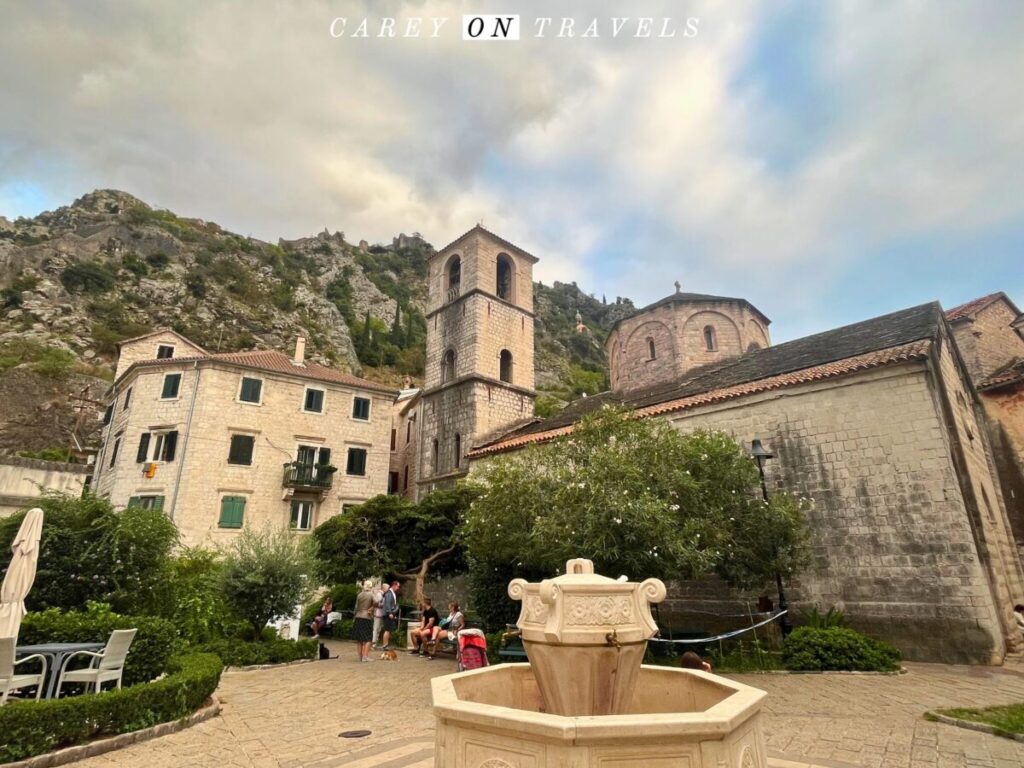
- St. Michael’s Church is a small Romano-Gothic church built in the late 13th-early 14th century. It contains a lapidarium, where stone monuments and fragments of archaeological interest are exhibited. While it’s free to visit the church, there is a small fee to visit the lapidarian.
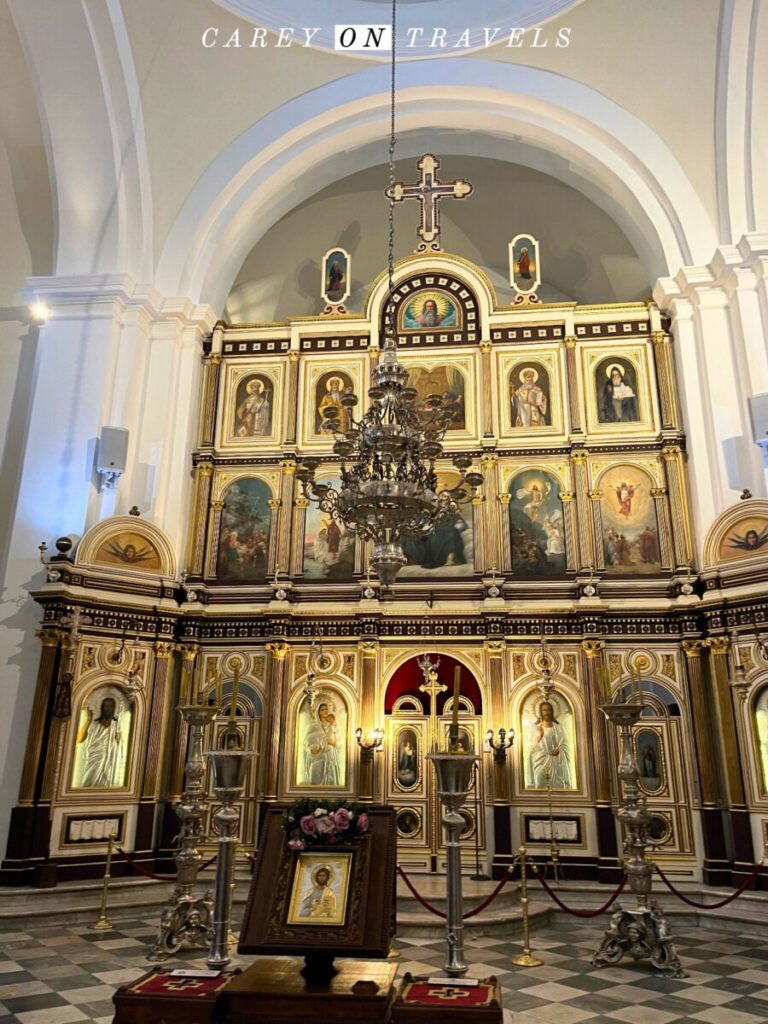
- St. Nikola Church is another Serbian Orthodox Church, build in the early 20th century after the previous church was destroyed. Tour the inside to see the numerous paintings of saints.
 St. Nikola Church, Kotor, Montenegro
St. Nikola Church, Kotor, Montenegro
4. Kotor’s Old Town Museums
Kotor is known for having unique and even some quirky museums. A few of the top museums include:
- The Maritime Museum showcases Kotor’s maritime history. You could easily spend an hour or two exploring the extensive collection of seafaring artifacts. Admission is around 5 Euros. Enjoy a virtual tour on the museum’s website in advance of your visit.
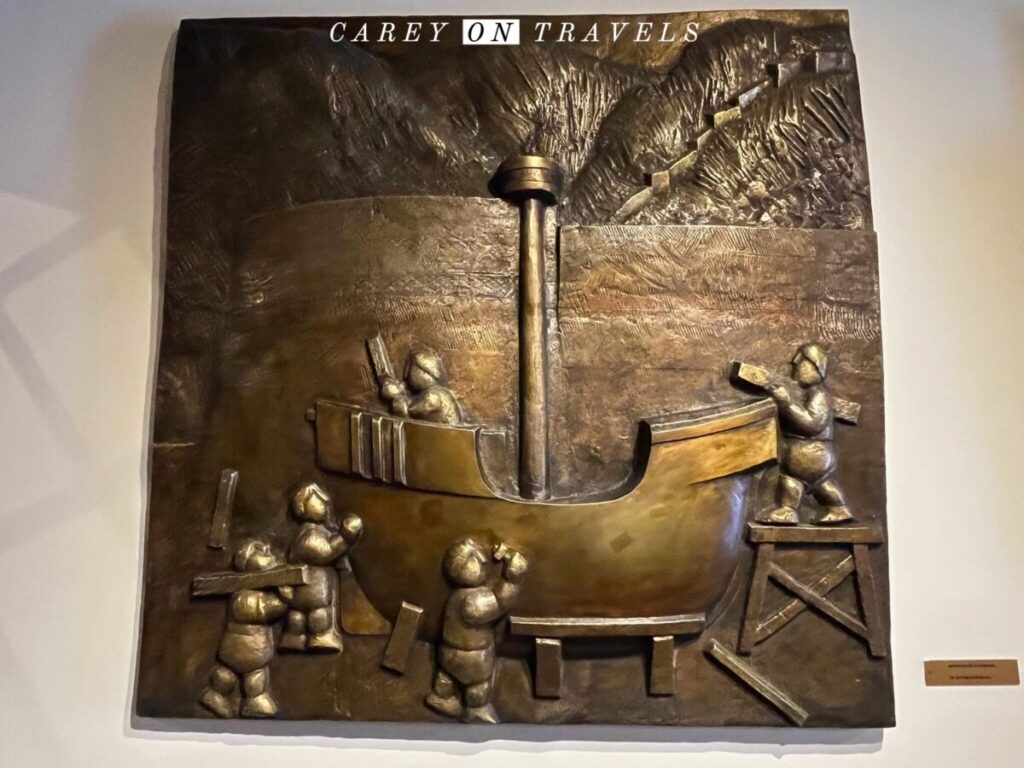
- Kotor Cats Museum is a quirky museum dedicated to the town’s beloved felines. You’ll find cat memorabilia and artwork. Beyond the museum, enjoy the many cats you’ll see wandering the streets. Note that the museum is typically open from May 1 – October 31st.
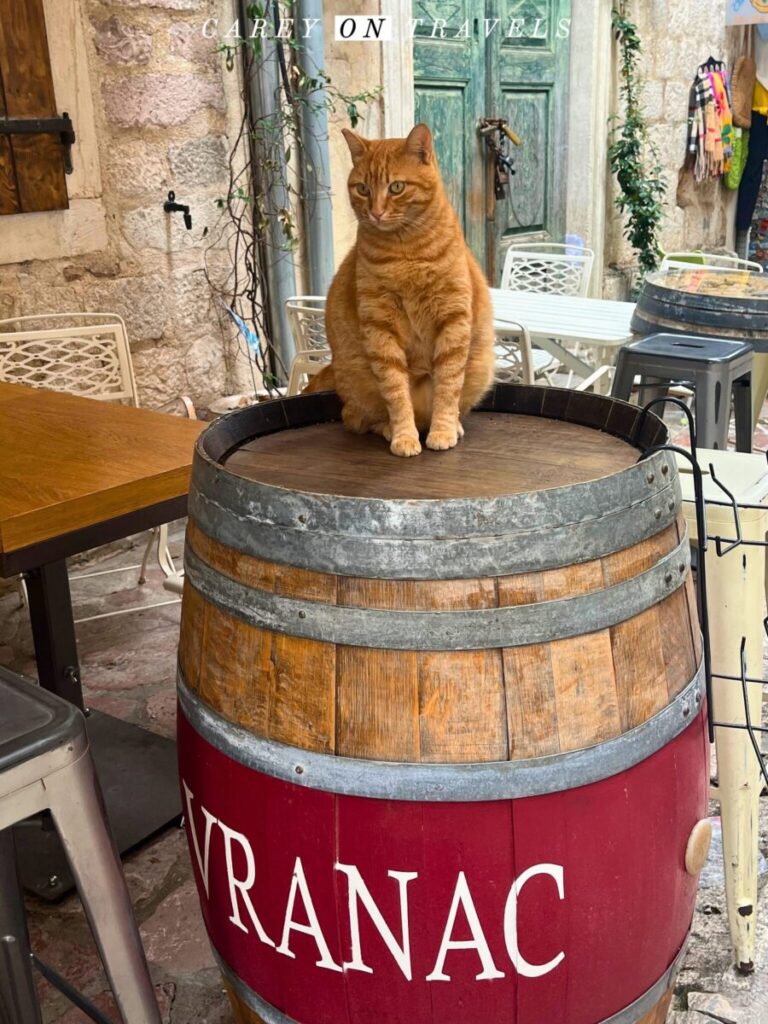
- Other notable museums include the free Dukley Art Center, the Historical Archives of Kotor, and Namfleg, displaying unique jewelry.
5. Enjoy Old Town Kotor’s Restaurants and Shops
The Old Town is also packed with cozy cafés, traditional restaurants, and boutique shops, making it the perfect place to immerse yourself in the local culture. A few of our favorite restaurants to visit while in town:
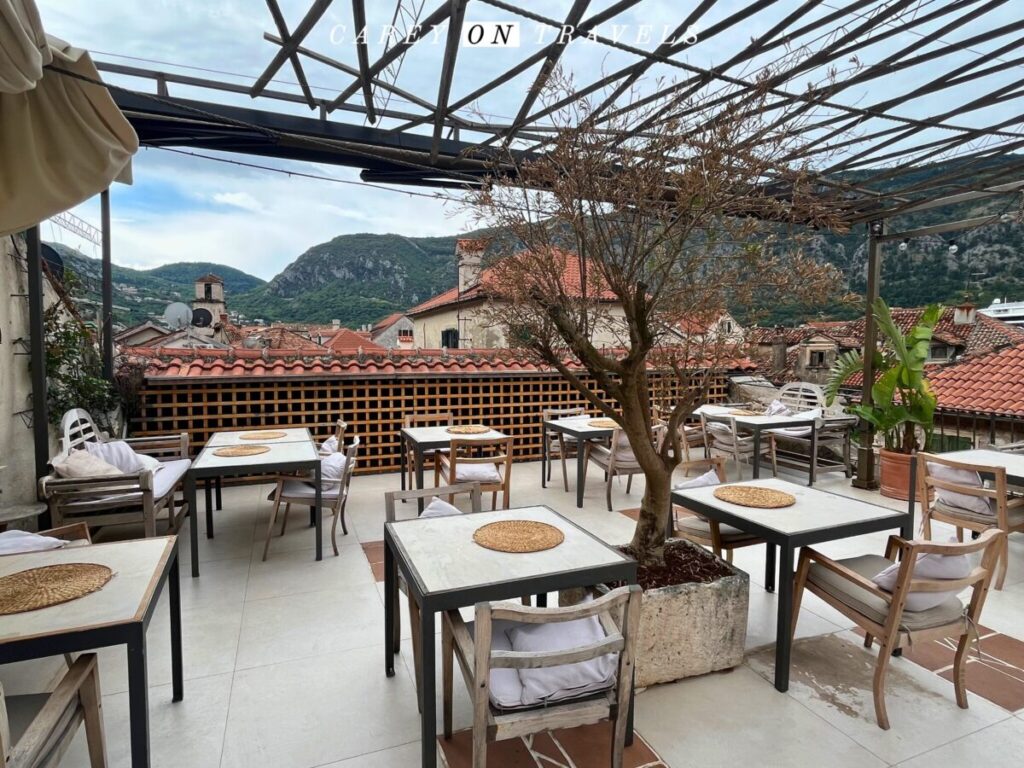
- Hotel Hippocampus has a quiet rooftop terrace, which is a perfect spot for a breakfast or brunch with a view (we had the terrace to ourselves on our latest visit);
- BBQ Tanjga is one of our favorite lunch spots, though it is just outside of old town. They’re known for their large quantities of Montenegrin BBQ meat at reasonable prices. I enjoyed their salad bar, which had a decent amount of variety.
- Konoba Scala Santa is a nice choice for dinner right in old town. Try their fish or other local specialities and enjoy the great service at reasonable prices.

6. Climb to San Giovanni Fortress
One of Kotor’s highlights is the hike up to the San Giovanni Fortress, also referred to as the Kotor Fortress. The climb involves over 1,355 steps, but the sweeping panoramic views of Kotor Bay are well worth it. Start early in the morning to avoid the heat and crowds, and bring plenty of water. There is really no shade on the route. Be prepared with sturdy shoes for a steep hike, with plenty of narrow stairs, some loose stones, and areas with no hand rail. This is not a good hiking choice for those with mobility issues, nor those with a fear of heights.
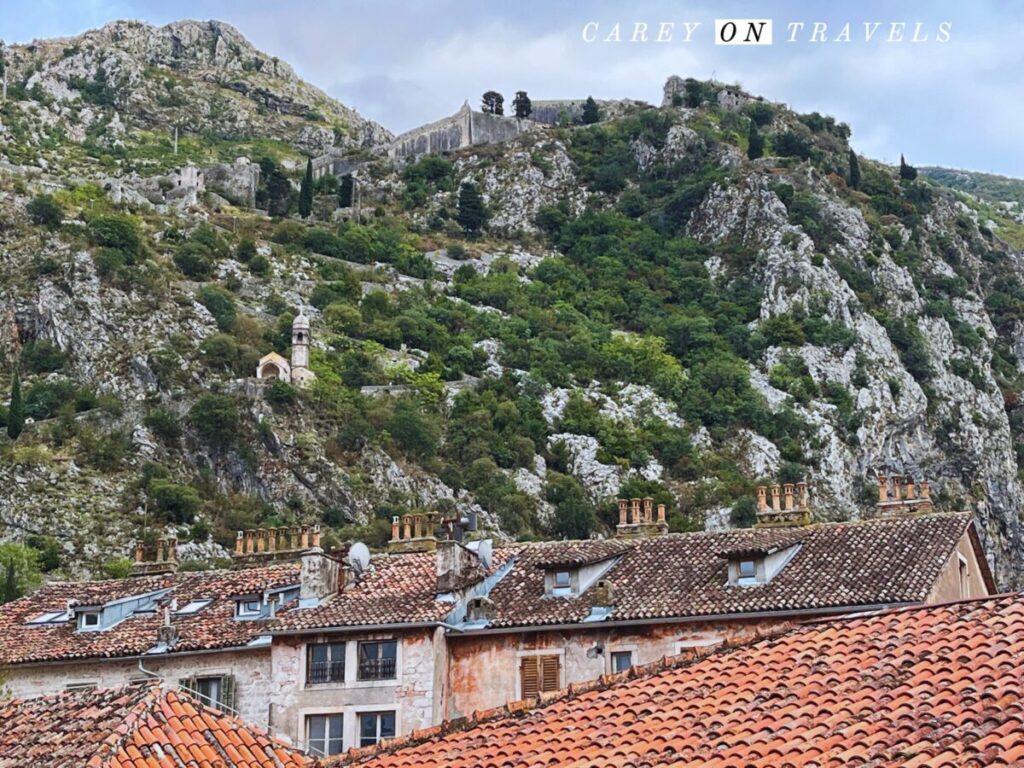
The easiest entrance to find is near the North/River gate. Walk straight through the gate towards town, passing restaurant Bastion. Look for an archway on your left, with a small sign for the fortress. At the gate, you’ll need to pay an entry fee (currently 15 Euros per person). We’ve heard that there is no entry fee in the off season, but have not been able to verify this. You are only allowed to be on the trail during open hours, typically 8 am – 10 pm (doublecheck hours as these may vary).
Pro tip: Be sure to hold on to your ticket until they check your ticket on the way out. You may need to buy an additional ticket if you misplace it.
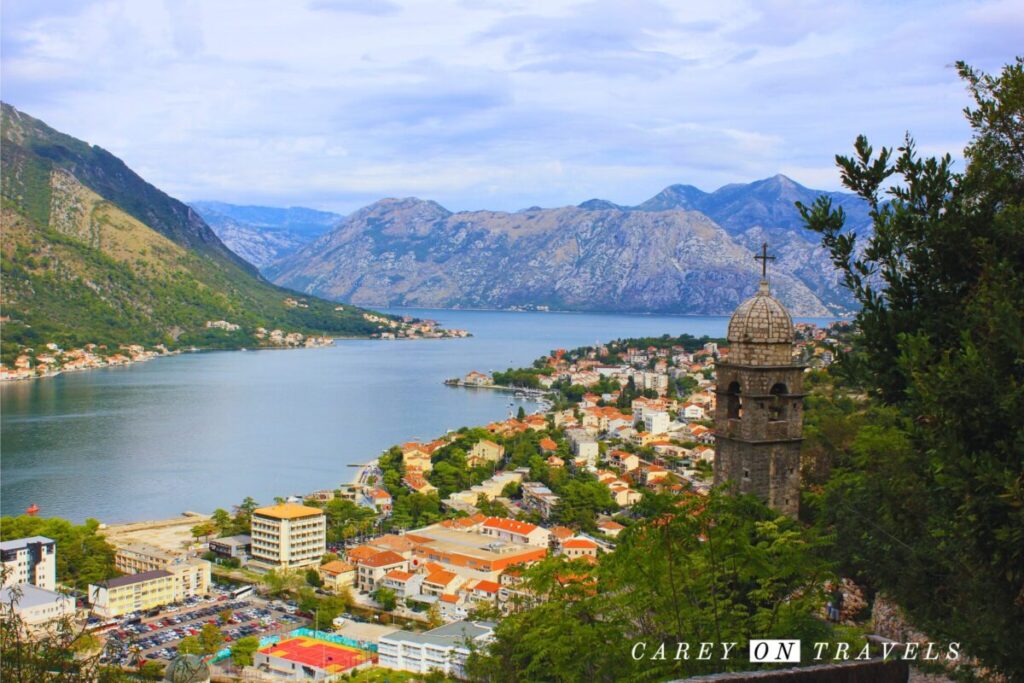
While the price tag is quite high, we enjoyed our early morning hike to the fortress with almost no other hikers. Quite a few people have written about a way to reach the fortress for free by taking the Kotor Ladder trail and branching off to intersect the fortress trail. During the high and shoulder seasons, there is a security guard preventing people from taking this free route. It may still be possible in the off season.
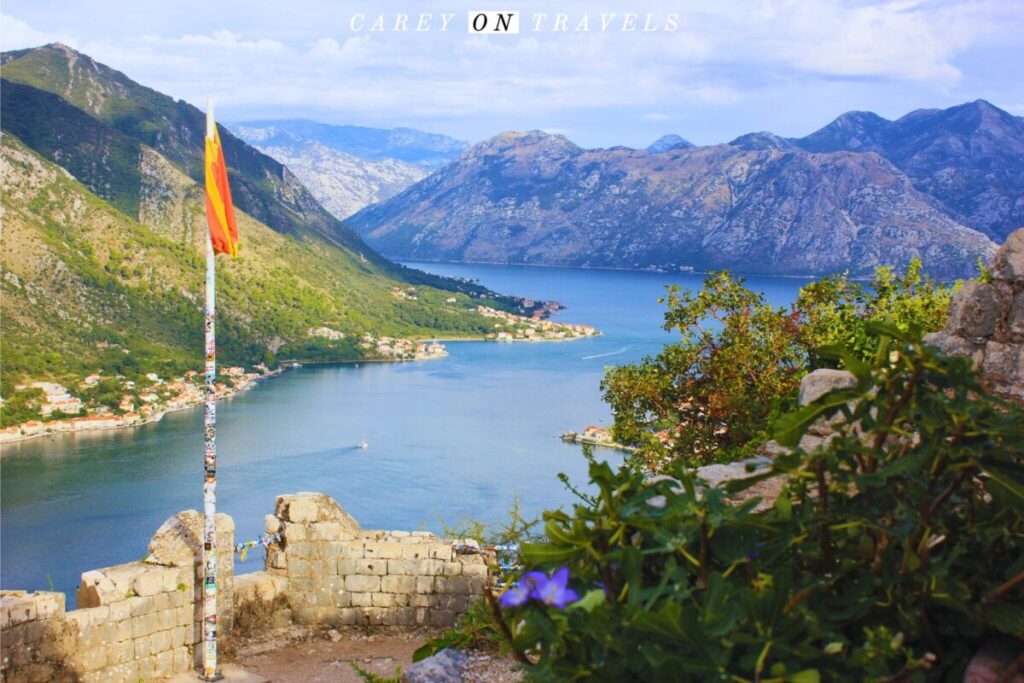
7. Discover Perast and Our Lady of the Rocks
A short trip from Kotor brings you to the charming town of Perast, known for its baroque architecture and serene atmosphere. Buses run regularly between Kotor and Perast, or you can drive or take a taxi. Another great option is to take a Boat Tour from Kotor to Perast and Our Lady of the Rocks. Be sure to climb to the top of the St. Nicholas Church bell tower for panoramic views of the Bay of Kotor.
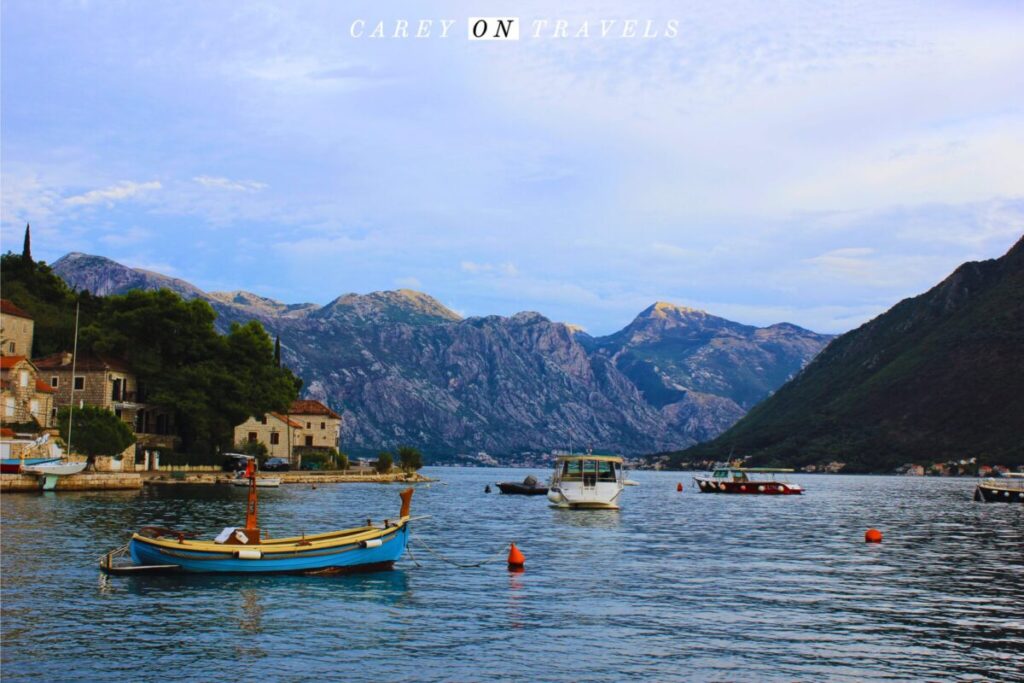
Once you’ve explored Perast, take a boat to Our Lady of the Rocks, a small man-made island with a historic church and museum. Legend has it that 2 local brothers found an icon of the Virgin Mary here in the 15th century. Sailors created the island over time by continuing to drop rocks into the bay.
To go to the island, head down to the docks and you’ll find plenty of boats giving people rides to the island. It cost 10 Euros for our roundtrip ride (with time to explore the island)
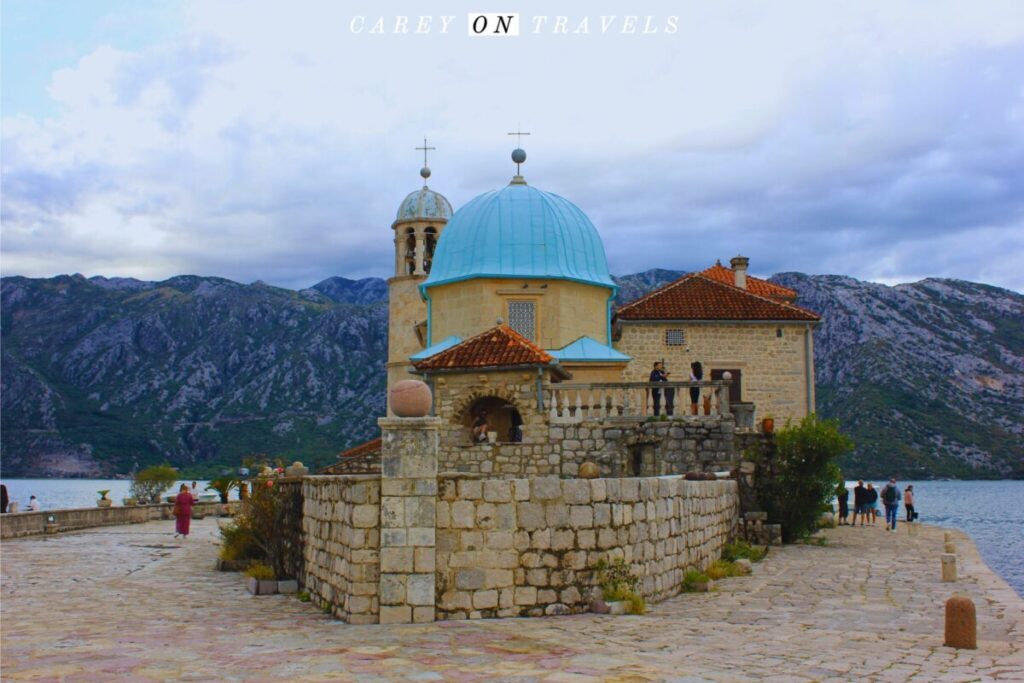
8. Take a Boat Tour on the Bay of Kotor or to the Blue Cave
Explore the Bay of Kotor on a kayak or paddleboard for a unique perspective, or enjoy a high speed boat tour. Alternatively, extend your boat tour and visit the Blue Cave. Located on the Lustica Peninsula, this natural wonder gets its name from the vibrant blue light created by sunlight reflecting off the water.
- Swimming and Snorkeling: Dive into the crystal-clear waters of the cave for an unforgettable experience.
- Boat Tours: Most tours to the Blue Cave also include stops at the iconic Mamula Fortress, Perast, and hidden beaches. Find more details on Kotor’s top boat tour here.
Tip: Bring waterproof gear to capture the stunning colors inside the cave.
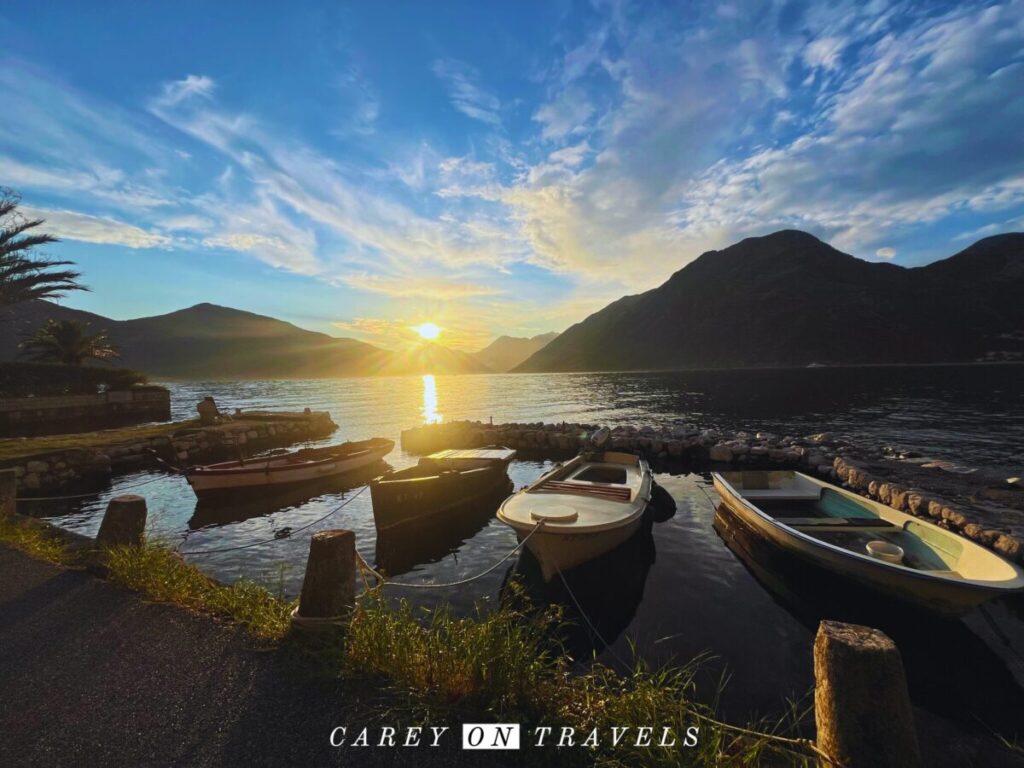
9. Hike the Vrmac Ridge
For those looking for a less crowded and incredibly scenic experience, hike the moderate 8.5 km Vrmac Ridge trail. This ridge lies between Kotor and Tivat and offers stunning views of both bays. We have yet to be able to find just this section of the trail on Alltrails, though many people have described the route.
The trail starts at the Vrmac Fort. There is no public transport to reach the trailhead, so you’ll need to drive or hike from town. The hike is over 4 km up the Franz Joseph Stairs, a switchback trail. If you rent a car and drive up the sometimes narrow road, park next to the fort and farm. Watch out for the farm animals roaming around the parking lot. You can visit the Vrmac Fort ruins, though we chose not too on this trip.
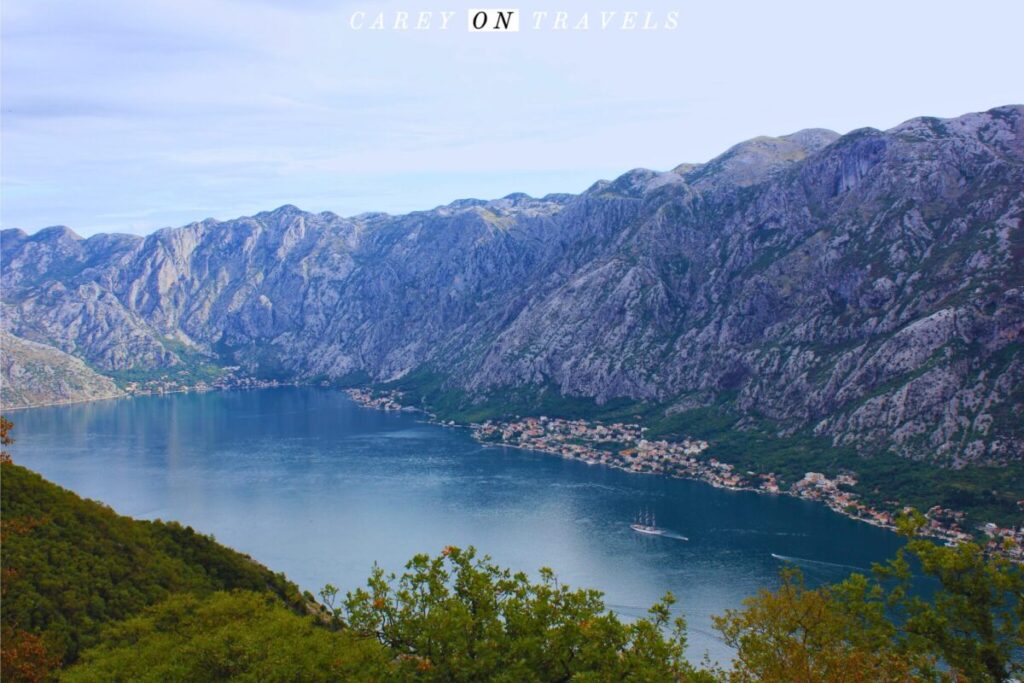
You’ll hike along an old military road, and will pass abandoned bunkers along the way. This trail has a gradual incline until you reach the summit, with platforms with spectacular views along both sides.
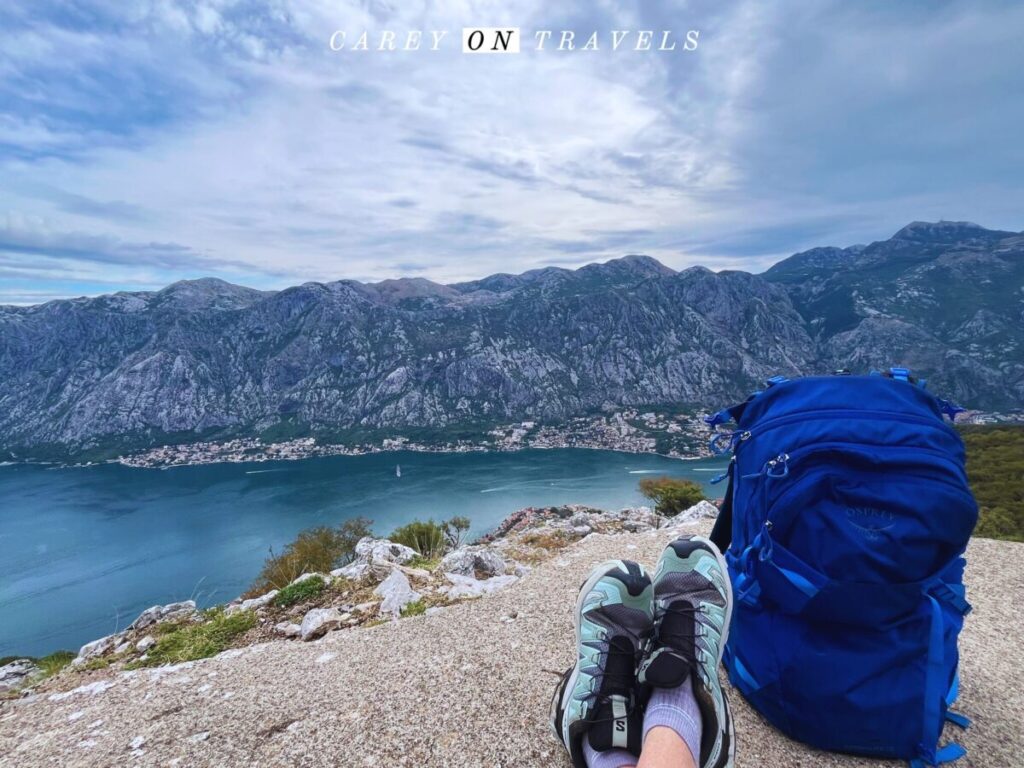
10. Ladder of Kotor
This historic 13 km roundtrip zigzagging trail climbs from the Old Town to the Njeguši village, rewarding hikers with incredible views and a sense of accomplishment. If you’re up for a challenge, take this moderate-challenging old serpentine trail that was once a main trade route, and the only path connecting Kotor with Njegusi village and Cetinje.
Start near the north side of Old Town and follow the 70+ switchbacks up the mountain. Be sure to stop and enjoy the views along the way, both of Kotor Bay and the surrounding mountains.
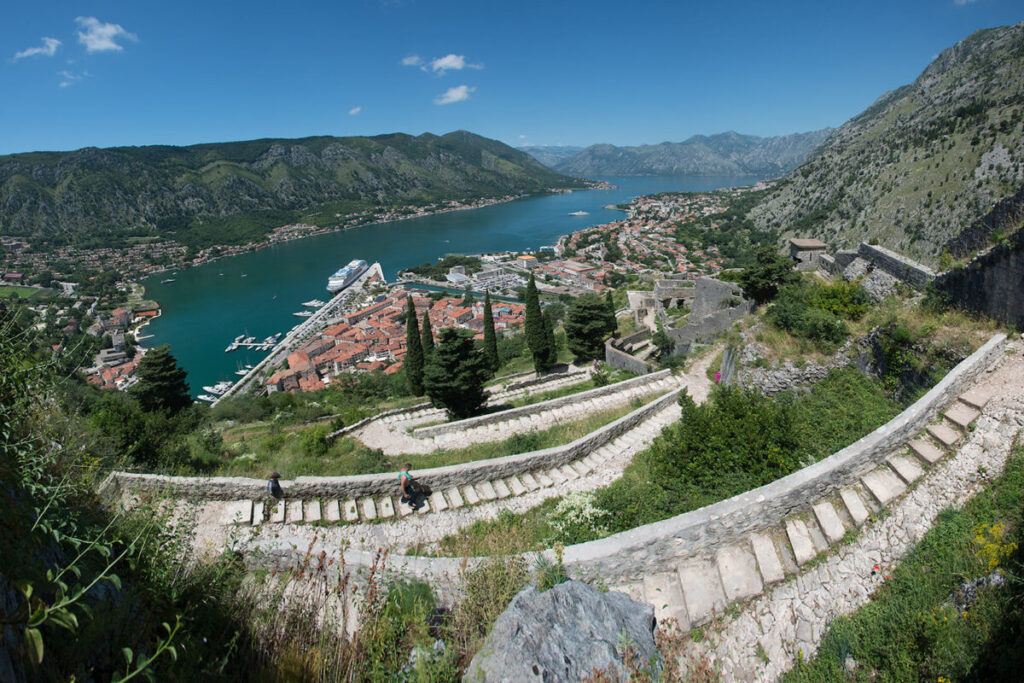
When to Visit Kotor
The best time to visit Kotor is during spring (April-May) and autumn (September-October). These shoulder seasons feature mild weather and fewer crowds, making it easier to enjoy the sights. Summer (June-August) is vibrant but busy, while winter (November-March) offers a quieter, cooler experience.
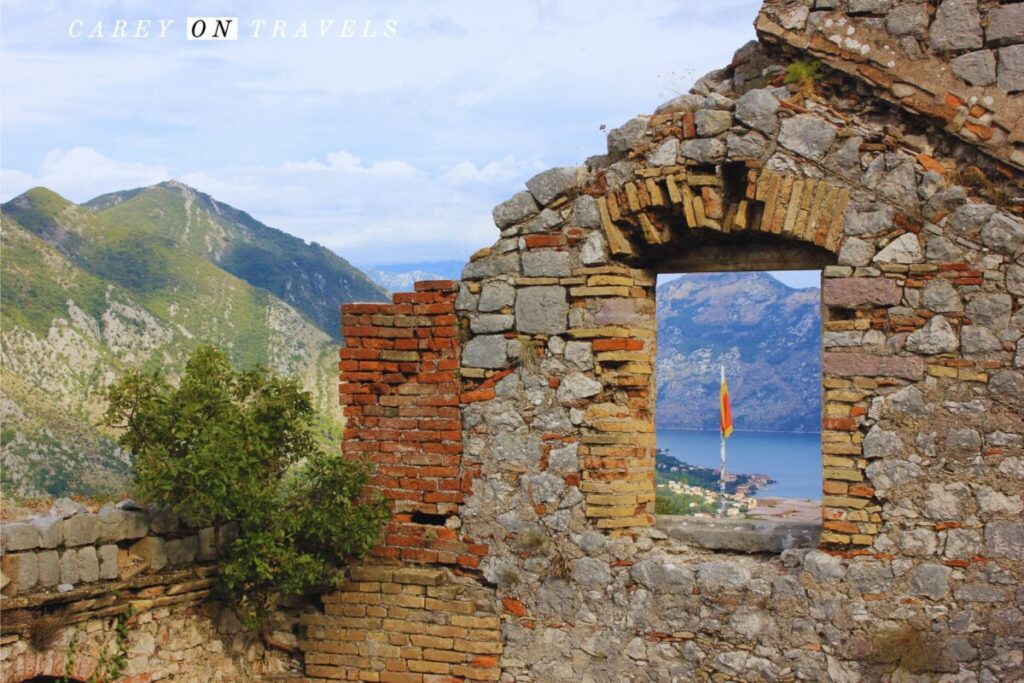
Wrapping up the Best Things to Do in Kotor
From exploring historic streets to conquering scenic trails, there’s no shortage of incredible Kotor things to do. Given that it is just 2 hours from Dubrovnik by car or bus, it is very easy to combine a visit to Kotor with a Croatian Coastal holiday. A few other suggestions if time allows are to visit Kotor’s market, the clock tower, and the waterfront promenade. Pack your bags and get ready to discover the magic of this Adriatic treasure!
If you enjoyed this post, please pin it for later!
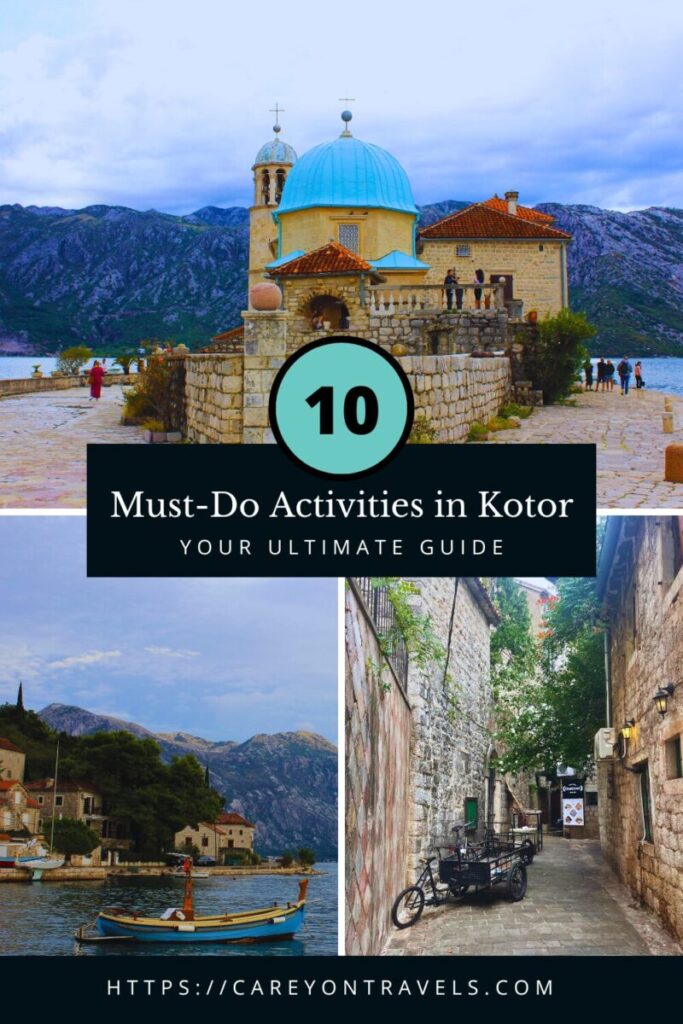
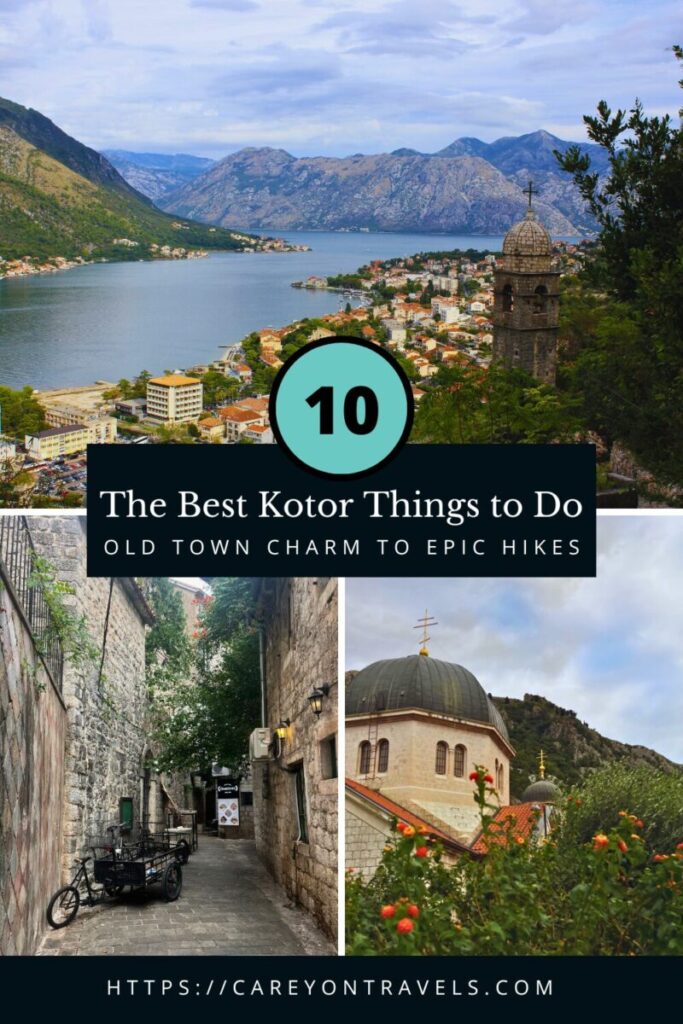
Travel Resources
We recommend booking through our preferred travel booking sites below.
| Air Travel | SkyScanner |
| Lodging | Booking.com, VRBO.com, Expedia.com, Hostelworld |
| Tours and Activities | Viator.com, GetYourGuide.com, TakeWalks.com |
| Car rentals | Discovercars.com |
| Travel insurance | Squaremouth |
| Bike and scooter rentals | BikeBookings.com |
| Train tickets | Trainline, RailEurope |
| Bus tickets | Flixbus, Busbud |

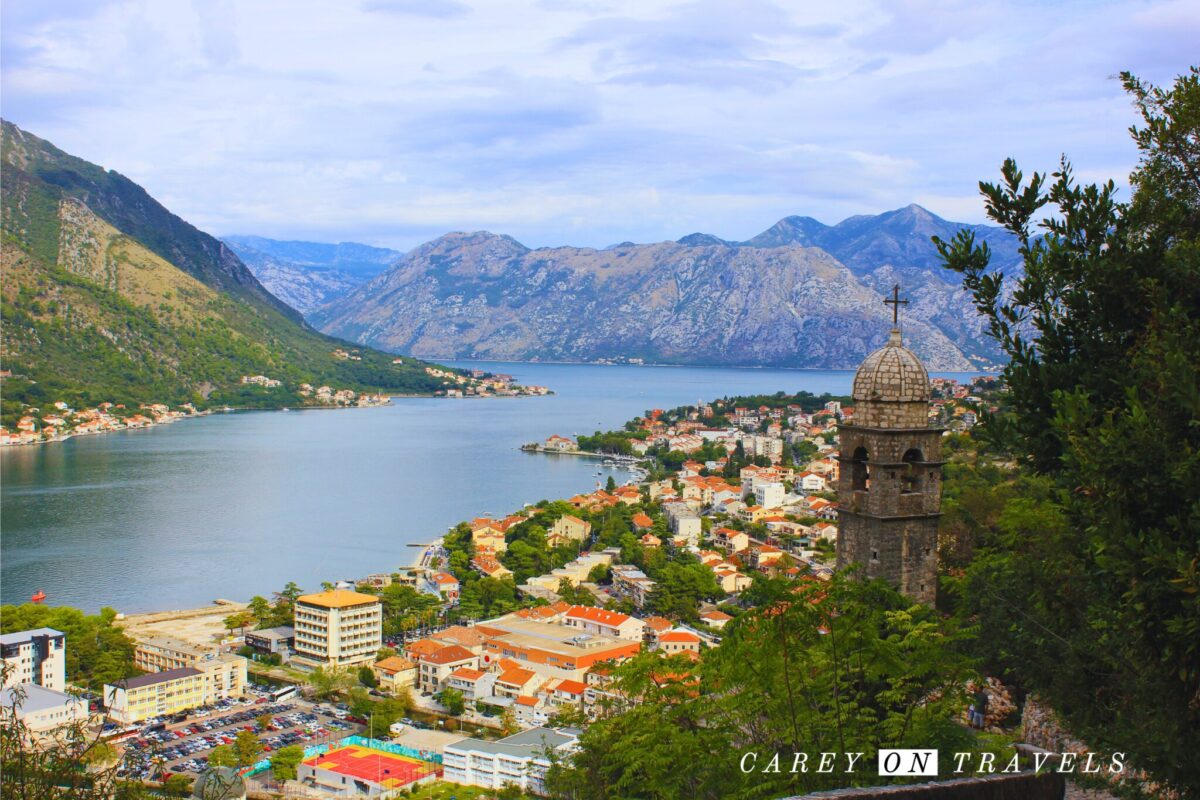




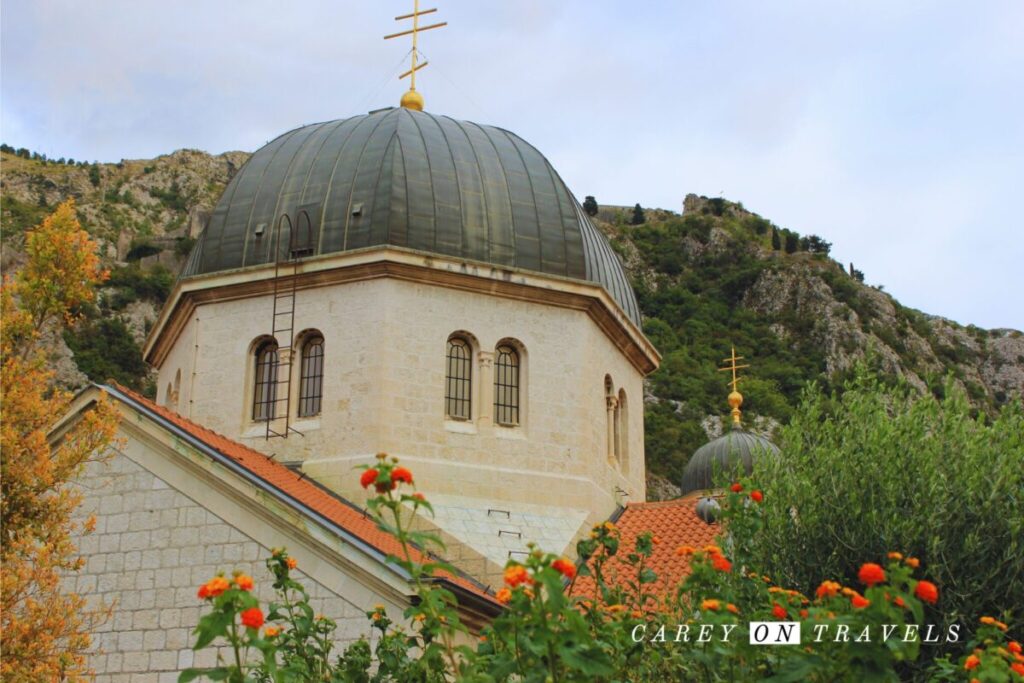 St. Nikola Church, Kotor, Montenegro
St. Nikola Church, Kotor, Montenegro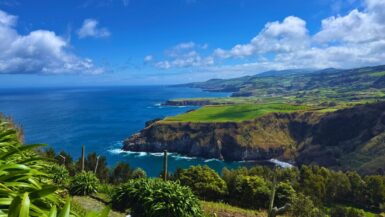
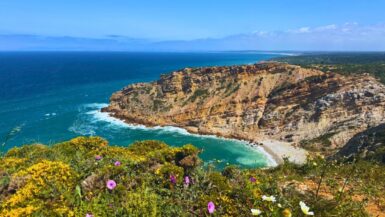

[…] in Montenegro is one of the country’s most picturesque coastal towns. Whereas Kotor is a busy city; Perast felt to us like a serene seaside getaway, with spectacular views of the […]
[…] seconds agoAdd comment Share this article FacebookRedditPinterestEmail Next article Discover the 10 Best Things to Do in Kotor Home » Blog » Places to Stay » Where to Stay in Kotor Old […]
Beautiful churches! I’d love to explore those in person. I also love the reading recommendations!
Thanks for the feedback, we enjoyed exploring the many churches while in Kotor.
That view from the top of The Ladder is jaw-dropping. Wow! So is 70+ switchbacks too. Not sure I could do that but I would like to try (not in the summertime) for that view!
Fall is ideal for hiking in the area–not quite as hot.
This is such a fantastic guide to Kotor! The mix of historical sites, scenic views, and hidden gems makes it super helpful for planning a visit. I especially love the tip about hiking up to the fortress early to avoid the crowds—definitely adding that to my must-do list
Thanks for the feedback. Yes, hiking up to the fortress early without many people around was definitely worth it!
I enjoyed Kotor, but spent most of my time in the Old Town. Next time I would enjoy doing other things you suggest, such as visiting Perast and the Blue Cave.
We visited Perast twice during our stay and really enjoyed the change of pace from the city.
Super helpful article, will definitely have all the info in mind when visiting Kotor, and love the book recommendations!
Thanks for the feedback!
Kotor is a great destination to explore. I appreciate the hiking recommendations in the vicinity. For those who may not be as enthusiastic about hiking, I would recommend taking the Kotor cable car for breathtaking views.
Great suggestion about the cable car!
Go for the views, stay for breakfast on the terrace! I can see why it’s a traveler’s heaven for its outdoor landscapes. Great coverage!
Thank you for the feedback.
So much to explore out there! I can’t wait to visit the Bay of Kotor one day and do the Ladder of Kotor.
Hope you have a chance to visit!
Amazing suggestions! The hikes look especially unmissable, I would love to go!
Thank you for the feedback.
I have always wanted to go back for a longer stay, we did a day trip only. Your photos are beautiful and it’s a great post. I really love the idea of theWhat to Read before you Go. Very creative.
Thank you for the feedback. We enjoyed having more time to explore Kotor and the surroundings, though we have on our list to go back and explore other areas of Montenegro we didn’t make it to.
Kotor looks so dreamy. The way you have described each place is just so inspiring, and make me want to visit the beautiful place soon.
Thank you for the feedback! Hope you have a chance to visit.
Oh my goodness! The rich history is so fascinating in these photos of Kotor. The bay, the narrow streets, the churches, the shops, etc., they all look so quaint and beautiful. What an interesting place to spend time exploring! Thank you for sharing this area of the world!
Hope you have a chance to explore Montenegro
I just recently visited Kotor this past fall and I can’t wait to return again during the summer season. Such a beautiful city!
We really enjoyed visiting in the fall. Summer would be nice to enjoy more water sports though.
When (not if!) I visit Kotor, I’ll will definitely be walking on the walls!
It’s definitely a fun activity, especially walking up to the fort.
I visited Kotor long time ago but I would love to come back and do some hikings, the scenery is stunning and the cobblestone streets so magical
I wished we had even more time for hiking a bit further from Kotor. There is so much to explore.
ah i love this guide, also all the tips on things to do is saved now to my list on pinterest! 🙂
Thank you!
We only did a day trip to Kotor from Dubrovnik, but it sounds like we need more time to explore next time!
We enjoyed having 4 days, though could have easily spent a week doing some more day trips.
Kotor looks like an absolute dream! I’ve never been, but the way you describe it makes me want to book a flight immediately. That hike to San Giovanni Fortress sounds like a workout and a reward all in one—my kind of adventure! Yep, adding this trip to my ‘someday’ list. Thanks for such a fun and detailed guide!
Hope you can visit! The fortress hike was excellent, especially 1st thing in the morning when it was empty.
Wow, this town looks so cool. I love visiting old towns like this – so much history!
Hope you’re able to visit Kotor!
[…] day ago48 comments Share this article FacebookRedditPinterestEmail Previous article Discover the 10 Best Things to Do in Kotor Next article How Many Days in Split? A Guide to Planning Your Stay Home » Blog » […]